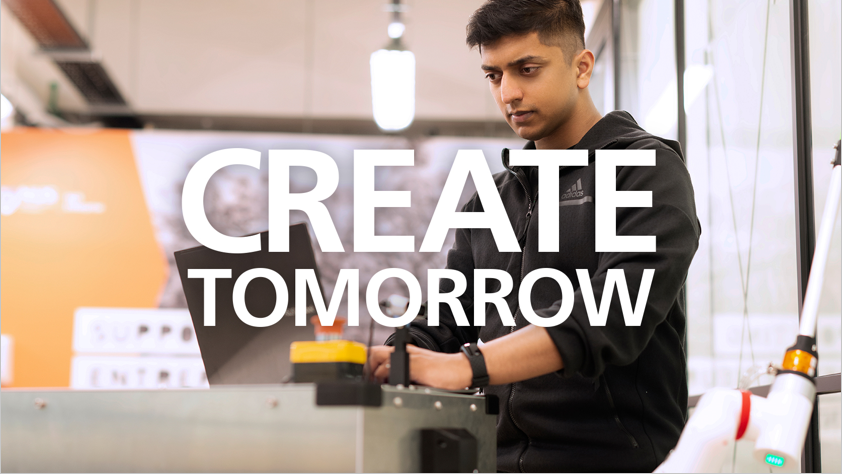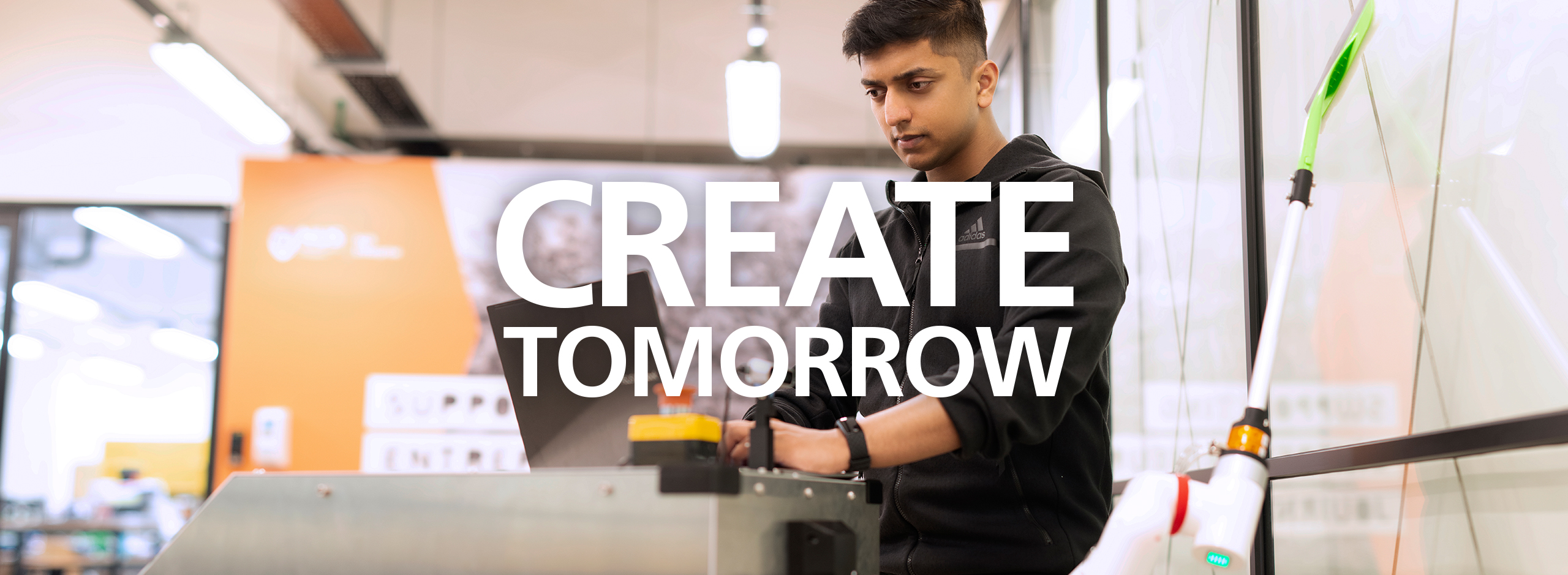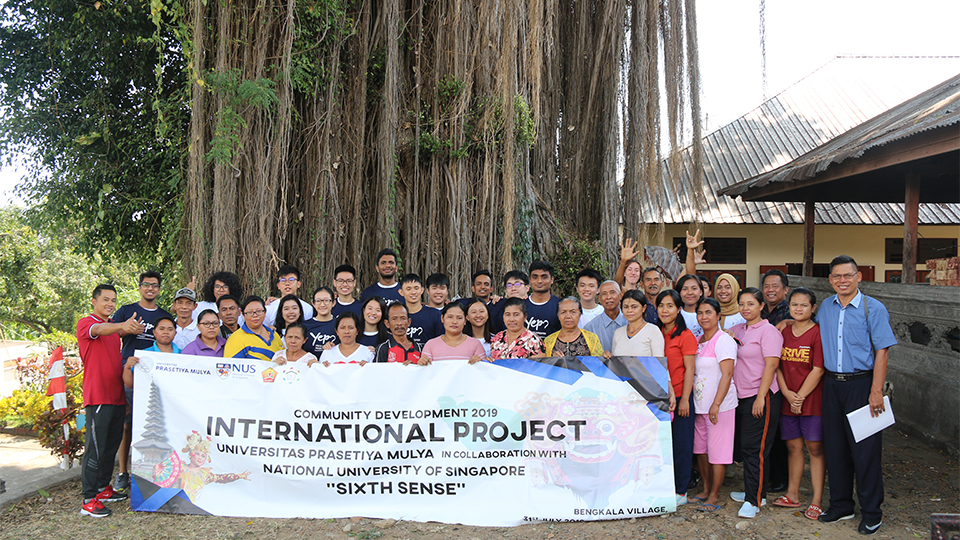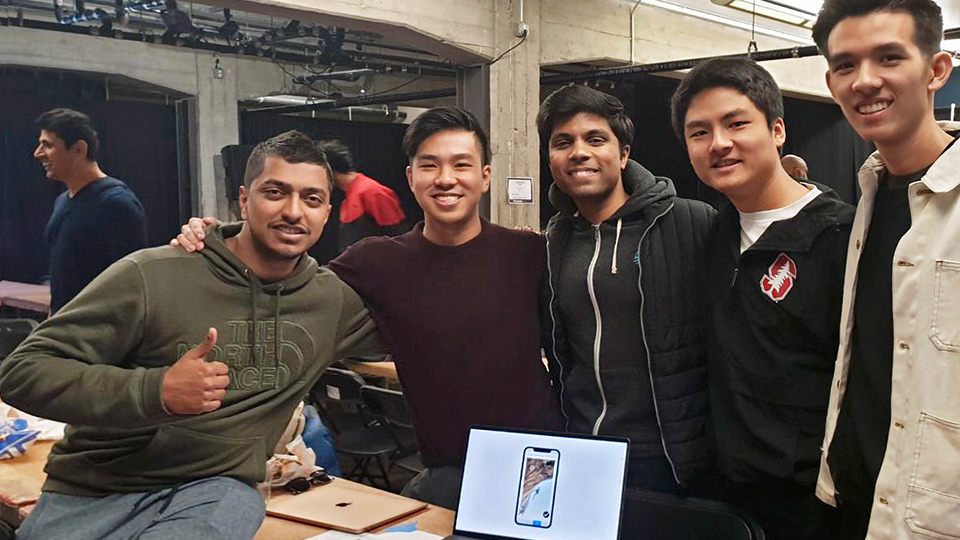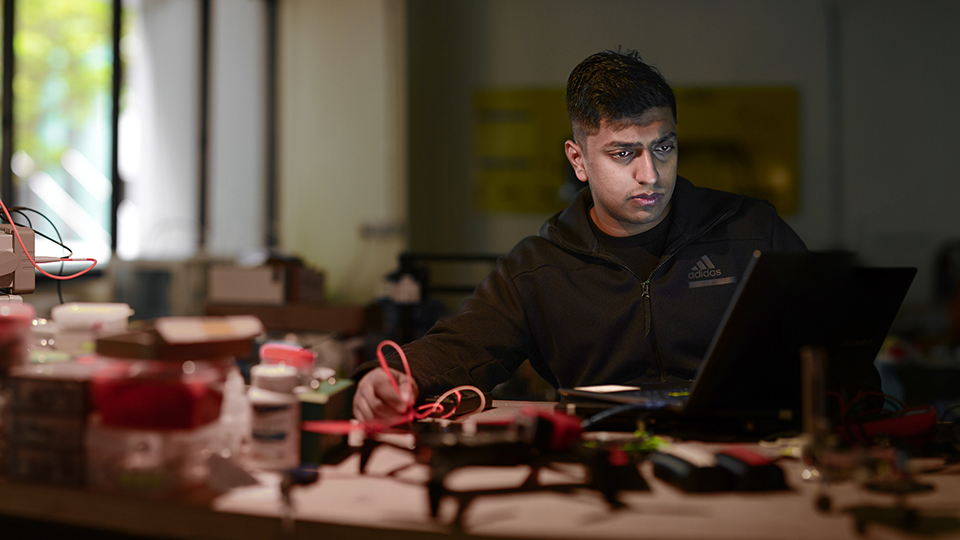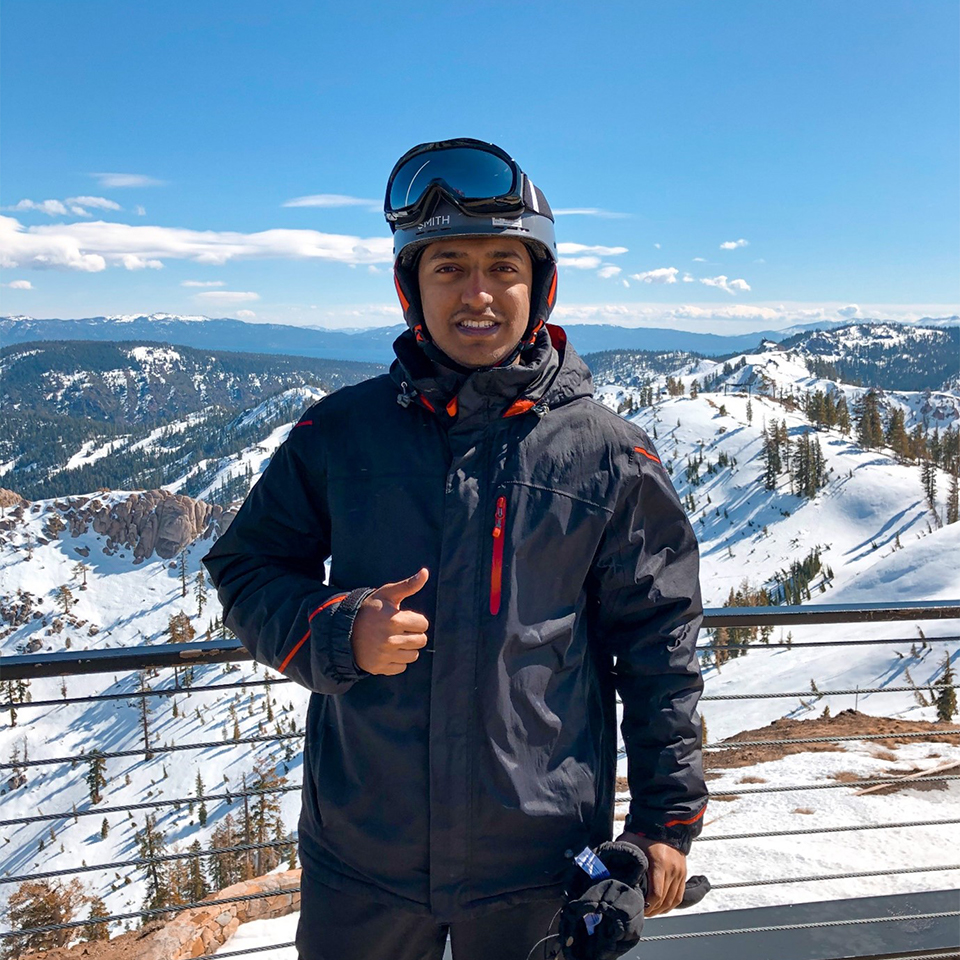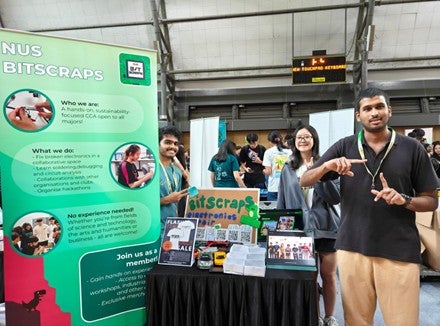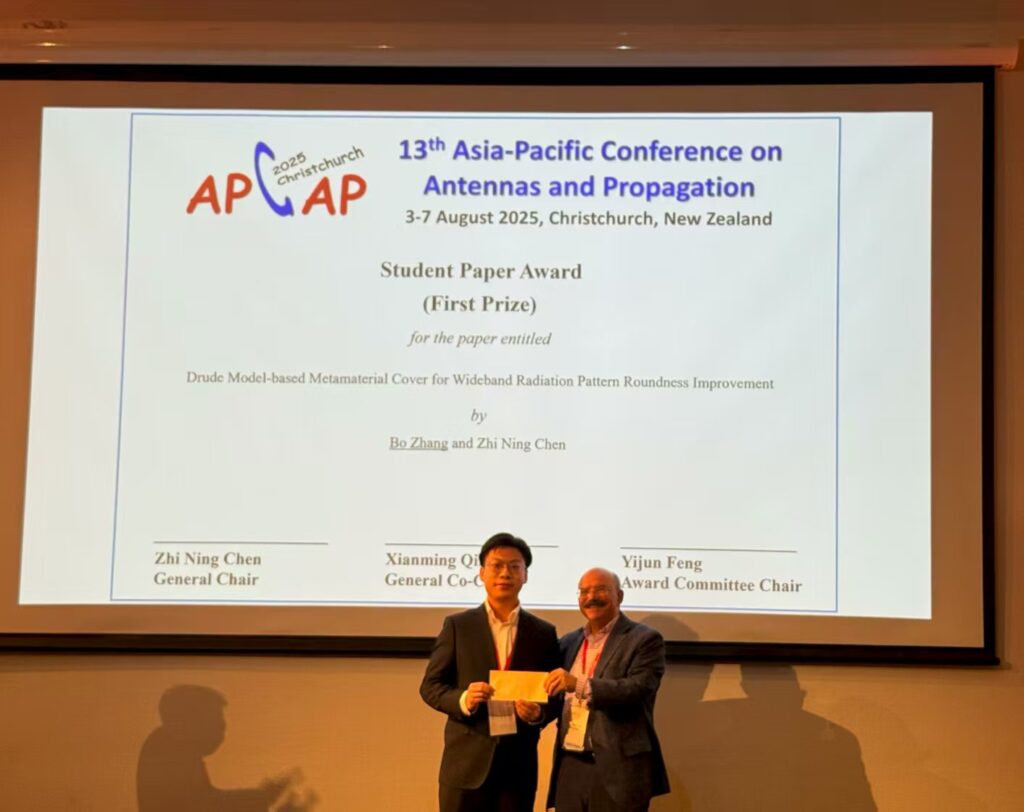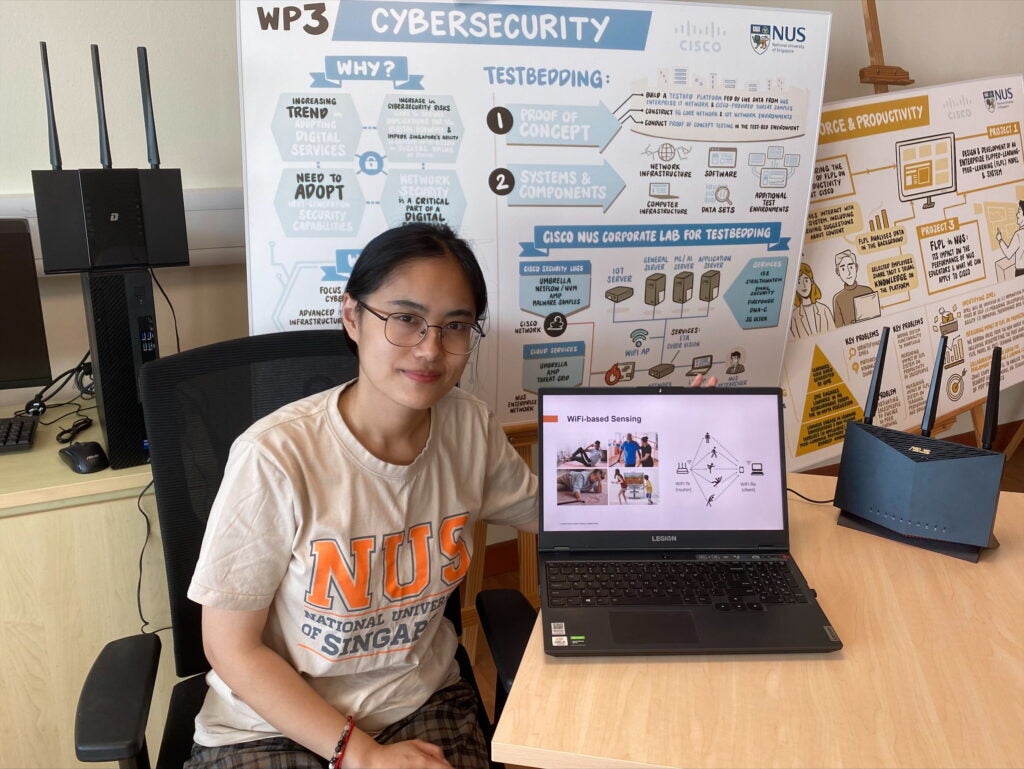Rishab Patwari
Co-founder & CEO, HiveBotics
Year 4, College of Design and Engineering
Ask Rishab Patwari about his fascination with computers, and he traces it back to his grandfather, who ironically knew little about computers.
“Back when I was much younger, my grandfather got interested in computers and wanted to try using them,” he recalls. “After teaching him and seeing him use social media, I came to realise how much depth there is in the field.”
During National Service, Rishab built his own PC gaming rig. Despite the high cost and time that had to be invested, he found it a rewarding experience.
“For me, the motivation was just finding out how things work and how things are put together. After that, I knew computer engineering was for me.”
This interest would propel Rishab when it came time for him to decide on his course of study. Of the various prestigious computer science courses that offered him a place, Rishab eventually decided on NUS Computer Engineering , a joint programme between College of Design and Engineering, NUS (CDE) and NUS School of Computing (SoC), because it gave him the flexibility to explore both the hardware and software aspects of computing.
For a freshman who hadn’t yet decided on which area to specialise in, it was the perfect fit.
“Computer engineering is the multidisciplinary bridge between computer scientists who write the algorithms and electrical engineers. If you are not sure which side you prefer, take computer engineering because it gives you the breadth to try modules from both sides”
Rishab’s journey at NUS Computer Engineering would take him to some rather unexpected places — in a good way.
“In 2019, I joined a small team of NUS students from Computer Engineering and Computer Science to help a village in Northern Bali called Bengkala with tourism publicity,” he shares.
For close to six generations, a large proportion of Bengkala’s population has been born deaf, and people there have accustomed to this phenomenon by developing Kata Kolok, a local sign language unique to their community. Rishab took on the role of developing a website to help visitors from all over the world book homestays at the village, as well as preserve and highlight Bengkala’s artefacts. This served the village well in overcoming communication barriers and expanding its market internationally.
These experiences in the field are complemented by equally unforgettable moments in the classroom – such as when one of his professors gave a class whilst cosplaying as a beloved Disney character.
“He ran on the stage dressed as Buzz Lightyear and shouted ‘to infinity and beyond’ because the lesson was about the subject of infinity,” he recalls of Associate Professor Terence ‘Lightyear’ Sim, laughing with disbelief.
Besides memorable teachers, Rishab also credits the first-year teaching assistants for fostering a vibrant and inspiring classroom environment.
“In a first-year module, I remember having a teaching assistant named Arjo, who really shared his passion with us. He would tell us all the things he’s working on, from self-driving vehicles to the headphones he designed for himself,” Rishab recalls.
“He was a great influence. When I was in the classroom with him, he made me want to go out there and try something as well.”
However, Rishab’s favourite module by far is Introduction to Space Systems, where students learn how to design rockets and satellites. He found it immensely exciting because it puts something distant and seemingly impossible within arm’s reach.
“Everyone wants to go to space, but how do you even get there? After you take this module, you think ‘Oh, wow, it’s actually not that difficult’”
On the whole, the Computer Engineering course has changed Rishab’s perspective on technology. Before matriculation, his main focus was on learning the nuts and bolts of how computers work. As a final-year student, he now realises there’s more to computer engineering than just technical knowledge.
“Programming, for example, is a very systematic and logical way of solving problems. As you go deeper, however, you realise that not everything can be solved by logic.”
“You have to consider the human and emotional aspect of things, and how people interact with the things you design. After all, if you have the best solution and no one wants to use it, it’s just a waste,” he says.
Another highlight in Rishab’s undergraduate experience was the NUS Overseas Colleges programme in Silicon Valley, where he honed his soft skills while studying at Stanford University and interning as an iOS Developer at a Silicon Valley start-up, Vida Health. Although Covid-19 cut short his stay, the three months Rishab spent in the US offered him a wealth of new perspectives.
He realised, for instance, that NUS students were more than able to hold their own in an international setting.
“Working with the teams there, we initially felt imposter syndrome because it’s Stanford, but we quickly realised we’re just as competent as they are!” he recalls with a laugh.
Rishab also learnt that Silicon Valley thrives because of its unique culture. Working at a start-up there was both exhilarating and enlightening for him – the corporate hierarchy was completely flat, and the company culture entirely different from what he expected.
“Things moved more slowly because we spent a lot of time talking and discussing. The focus was not on productivity, but on ideas,” he muses.
The entrepreneurial zeal sparked by NUS and Stanford would lead Rishab to co-found his own start-up in 2021, with the support of the NUS Graduate Research Innovation Programme (NUS GRIP).
HiveBotics is an autonomous robotic cleaning start-up which uses robots to perform essential but menial cleaning jobs. The idea came about when Rishab visited a friend’s cleaning company. After learning about industry-wide manpower shortages, he decided to build something to solve the issue.
“At first, I was just developing a HR management software for my friend. After a lot of research and analysis, we realised that a hardware solution would actually be the most useful,” he says.
Running a start-up has been a steep learning curve for Rishab and his co-founder, who are both engineers by training. The start-up is currently in a self-funded stage, with the duo already working towards product trials on test sites while pinning down their optimal business model.
“It’s getting a little crazy managing schoolwork and building a start-up at the same time! But it can be done. It’s just how you manage it,” he says.
The journey has its challenges, but it’s been immensely rewarding, as Rishab tells it. He hopes the next generation of Computer Engineering students will find the same joy that he has. It might not be for the “faint of heart”, he admits, but you will be repaid for the effort you put in.
“If you do the bare minimum, you get the bare minimum.
If you push yourself and seize every opportunity, you will find it very enriching.”


